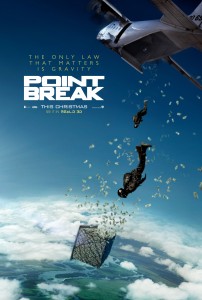Endre (Géza Morcsányi) is a withdrawn man. He remembers the active life he used to live when he had two functioning arms and now, with only one, he seeks solitude and his lack of day-to-day intimacy puts his eye to wandering. It’s a monotonous existence characterised by the clockwork brutality of the Hungarian abattoir he directs, but at least his sleep gives him respite. When Maria (Alexandra Borbély) arrives, his curiosity is naturally piqued. As the new quality controller, she has an air of mystery but struggles to fit in: quiet, shy, exact to a fault and somewhere on the autistic spectrum. By day, they are awkward and hesitant, but by night something remarkable happens. They share the same idyllic dream, a pair of deer foraging in pristine forest. Is it love or is it just coincidence?
On Body and Soul was nominated for best foreign film at the Oscars earlier this year, and it is no wonder. Not only is it a well-deserved recognition of women in the director’s chair, but Ildikó Enyedi has created a romance with more charm and imagination than any that Hollywood has churned out in years. Comparisons could be made with Yorgos Lanthimos’s The Lobster in the use of animals to navigate the grey territory of human connection. But where Lanthimos demonstrated a crushing cynicism, Enyedi’s vision is thankfully a more sensitive affair. Lanthimos viewed animal transformation as a threat to be avoided by finding a mate; here Enyedi’s imagination of life as a deer goes the other way entirely – in fact it’s almost hypnotic. These dream sequences are cathartic and peaceful, so much so that you might begin to envy the simplicity of their foraging lifestyle.
For Endre and Maria this shared sleeping pleasure means freedom – an escape from the bloody plight of the cattle that fill the production line and the endless hazards of social engagement. People squeamish about a bit of blood might want to look away as the abattoir process is documented in all its gore. It’s an eyeful that will come as a surprise, but its ugliness does serve its purpose as a grim point of contrast for Maria and Endre. And yet despite these painfully mundane surroundings, Enyedi’s fanciful premise can’t help but seem comical, so it’s only fitting that such revelations should come to light in similarly silly circumstances.
Consider that it takes the theft of a bovine mating agent by a staff member, a consequent police investigation, a voluptuous psychologist and a bizarre line of questioning about juvenile ejaculation to bring these lovers to an epiphany that they might have more in common. That would be laughable by itself; for people so socially detached as these, making passing contact seems almost taboo, let alone the thought that their relationship was aided (indirectly) by industrial-strength Viagra fit for a 1-tonne bull. Instead these two feel around hesitantly for signs of affection, one step forward, another step back. Endre grows frustrated, Maria deconstructs their conversations with figurines, they try again. In such circumstances, this may look more of an obstacle course than a courtship, but Enyedi’s gentle sense of humour and surefooted direction gives life to the film’s plodding progress.
Certainly one of the key reasons to keep watching is Borbely, who plays Maria with great tenderness. It is well-judged performance of muted expression, and some of the most touching moments occur when Maria and Endre phone each other before going to sleep and excitedly compare stories the next morning. And if it is true that the gloom of melancholy over On Body and Soul can be over-indulged to emphasise Endre and Maria’s detachment from the world around them, then the film can be quickly forgiven by savouring those small sparks of joy that might become flame. They are what make this such an endearing tale of love and loneliness.
On Body and Soul is in Australian cinemas from 10 May through Daricheh Cinema.




